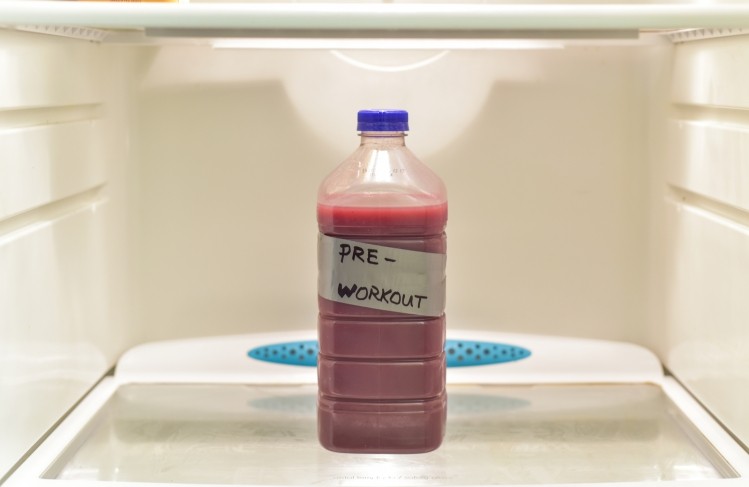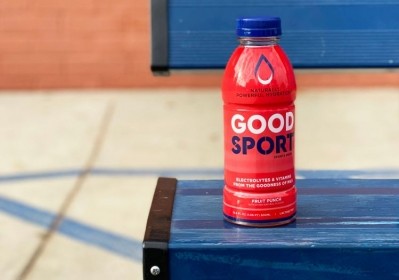Multi-ingredient supplement improves recovery, thanks to caffeine

Multi-ingredient pre-workout supplements (MIPSs) contain a blend of ingredients, such as caffeine (CAF), beta-alanine (BA), creatine, taurine, nitric oxide agents, and amino acids, as well as herbs and botanicals, formulated to enhance metabolic, physiological, and psychological function during exercise.
According to the authors of the current study, most studies examining the effectiveness of MIPSs have focused on measures of strength and power, indices of anaerobic exercise performance, and their effect on subjective mood, energy, and focus. The collective findings suggest that MIPSs are more effective at improving muscular endurance compared to maximal effort anaerobic performance.
And while a few studies have examined the effectiveness of MIPSs on endurance exercise performance, they have reported conflicting results and did not investigate competitive or highly trained endurance athletes.
PerformElite (MIPS-PE, EndurElite, USA) is a relatively new MIPS product specifically formulated for endurance athletes. Like other MIPSs, it contains CAF, BA, taurine, and beetroot, as well as a proprietary blend of mushrooms (PeakO2) and apple and ancient peat polyphenols (elevATP). Together, these ingredients are purported to enhance energy, buffer lactic acid, improve mental focus, reduce perceived effort, and delay the onset of fatigue.
The aim of the current study was to examine the effect of MIPS-PE on: TTF, heart rate (HR), rating of perceived exertion (RPE), and blood lactate concentrations in elite cross-country athletes.The research team conducted a randomized, double-blind, placebo-controlled cross-over study, using a sample of eleven NCAA Division I cross-country athletes (6 male and 5 female, aged 20 ± 2).
The resulting data suggest that a MIPS ingested prior to sustained running at lactate threshold has an 84% chance of increasing TTF in highly trained runners and may allow athletes to handle a higher level of circulating lactate before reaching exhaustion.The report concludes: "The current investigation results showed that the ingestion of MIPS-PE effectively increased TTF in highly trained runners at an intensity equivalent to their lactate threshold compared to a placebo. Overall, these data suggest a high probability that acute ingestion of MIPS-PE will improve TTF in Division I cross-country athletes during runs at threshold pace."
The study
All subjects had completed their in-season competition three days before the first experimental trial, and therefore were at similar training status and peak fitness. None of the subjects had ingested MIPS-PE or any other dietary supplements for a minimum of six weeks before testing. Subjects also were asked not to exercise in the 24 h before their testing sessions. Data collection took place over a seven-day period.
Thirty minutes before beginning the running protocol, subjects consumed either MIPS-PE (10 g) or placebo (PL, 10 g) mixed with 10 oz of water. Thirty minutes after consuming their assigned drink, subjects completed a running task to fatigue on a treadmill.
Blood sampling for lactate was obtained via finger-stick. Resting concentrations were measured after ten minutes of sitting. Lactate was further measured immediately post-exercise, five minutes post-exercise, and ten minutes post-exercise.HR was continuously monitored and RPE was measured using the Borg RPE scale to obtain a subjective measure of exercise intensity.
Both HR and RPE were recorded immediately before starting the running task, every three minutes during the exercise trial, and immediately after stopping the treadmill.
The study’s findings suggest that the tested MIPS may increase TTF in highly trained NCAA Division I cross-country athletes compared to a PL-control. The mean percent change in TTF between MIPS-PE and PL conditions was 6.2 ± 11.0%. When examining individual results, 8 of 11 subjects demonstrated improved performance during the MIPS-PE trial (range 5.0–18.3%).
The report concludes: "When running at a threshold pace, this supplement potentially increases time to fatigue decoupled from variations in heart rate and perceived exertion. In support of these time to fatigue observations, post-exercise lactate increased following the MIPS-PE condition. Therefore, there is a high probability that this supplement delays fatigue in highly trained cross-country athletes."
Mechanism of action
The researchers suggest certain ingredients contained in this study’s MIPS-PE likely had no meaningful effect on performance given their relatively small dose amounts for an acute exercise bout, including a proprietary blend of mushrooms, choline bitartrate, Panax notoginseng, and ancient peat and apple extracts. ]
The effect of beetroot supplementation has been studied for its potential ergogenic effects on endurance performance and the recommended dosage for an acute ergogenic effect is 6–12 mmol ingested two to three hours before exercise but the effectiveness of beetroot for enhancing endurance performance is ambiguous. Considering the uncertain effect of this ingredient and the suggested optimal timing for ingestion, the researchers in the current study suggest it is unlikely that the beetroot powder in the supplement had any meaningful effect on TTF in the current study.
Taurine is a common ingredient in MIPSs and has been shown to improve endurance performance when ingested alone or in combination with CAF. However, a two hour ingestion period has previously been shown to achieve peak plasma levels of taurine so it likely did not affect TTF in the current study.
A study by Ojeda previously reported that endurance-trained men and women who consumed an acute dose of BA (30 mg·kg−1 BW; 1.5 to 2.1 g) 60 min before a running task to fatigue ran 40.5 s longer compared to a PL trial. The amount of BA contained in the MIPS in the present study equated to a relative dose of 47.4 mg·kg−1 BW and 54.5 mg·kg−1 BW for the males and females, respectively; therefore, the researchers believe BA may have worked to improve TTF in this experiment.
Caffeine is a key ingredient of MIPS-PE, and it is widely accepted that low-to-moderate CAF doses ranging from 3.0–6.0 mg·kg−1 body weight (BW) can improve exercise performance in trained athletes. The total CAF content in the current study's MIPS was 217 mg which is within the recommended range to elicit an ergogenic effect.
Given the acute dose and the short timeframe from ingestion to exercise, the authors of the current study suggest that CAF was the primary ingredient responsible for the observed improvement in TTF, with a possibility that BA was at a high enough dose to potentiate its effects.
The report states: "Future studies using highly trained endurance athletes are warranted to replicate the findings, and should include measures of focus and alertness in addition to RPE, as well as blood and muscle biomarkers that may help to identify the primary ingredients responsible for the ergogenic effect, and should use designs that allow for a direct comparison of the MIPS-PE against its separate constituents."
Source: Nutrients
Fye, H.; Pass, C.; Dickman, K.; Bredahl, E.; Eckerson, J.; Siedlik, J.
"The Effect of a Multi-Ingredient Pre-Workout Supplement on Time to Fatigue in NCAA Division I Cross-Country Athletes"
https://doi.org/10.3390/nu13061823 (registering DOI)







